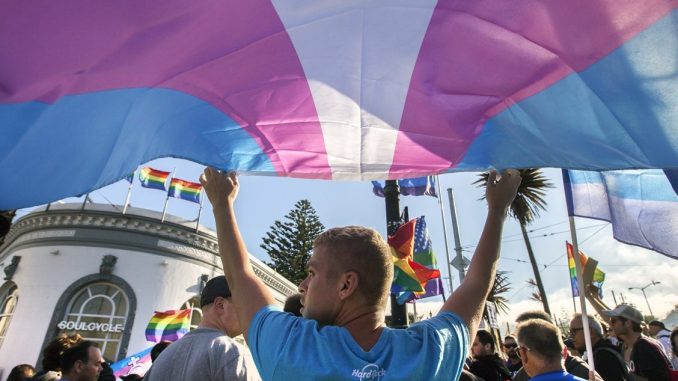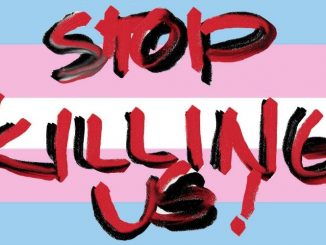
In a latest update, a United States federal court blocked President Donald Trump from pushing through his policy of banning transgender individuals in the military, the Guardian reported on Monday.
The ruling made by US district judge Colleen Kollar-Kotelly specifies that the military is prevented from discharging soldiers currently serving for their being transgender, becoming the first judicial response to multiple lawsuits filed against Trump’s policy.
“As a form of government action that classifies people based on their gender identity, and disfavors a class of historically persecuted and politically powerless individuals, the president’s directives are subject to a fairly searching form of scrutiny,” she said.
Additionally, she stated that the plaintiffs in the lawsuit filed by the National Center for Lesbian Rights and GLBTQ Legal Advocates & Defenders on behalf of eight transgender service members and students were likely to succeed.
Kollar-Kotelly also cleared the Pentagon to resume plans in accepting new transgender recruits starting January 1, 2018 and to continue insurance coverage for surgical procedures necessary to protect the health of a service person who has already started medical transition in reassigning his or her sex.
The block will remain in place while the lawsuit is being heard in the US district court for Washington DC. Fifteen Democratic attorneys general submitted a brief in support of the said lawsuit.
Shannon Minter, head of the National Center for Lesbian Rights, said that the new development was a relief.
“We are enormously relieved for our plaintiffs and other transgender service members,” Minter said. “Their lives have been devastated since Trump first tweeted he was reinstating the ban. They are now able to serve on equal terms with everyone else.”
There are between 1,300 and 11,000 transgender people serving in the military according to studies and advocates. During the administration of Barack Obama, the ban on transgender people was lifted upon conclusion of an inquiry led by then defence secretary Ashton Carter that revealed that their enlistment was unlikely to have a negative impact on military service.
Another research also showed that transition-related medical procedures, cited by the opposition to cost the military in terms of financial resources and disruption, will impact deployability of no more than 130 service members annually and will make up no more than 0.13% of the total spending.
In July this year, Trump overturned the Obama-era policy in a series of tweets.
A month later, he issued a memo directing the Pentagon to implement an indefinite ban of enlisting transgender people and requiring the military to discharge transgender soldiers by March next year.
The Pentagon, however, released an interim guideline in September allowing them to continue to serve and to re-enlist in the next few months.
According to CNN, Kollar-kotelly said that Trump’s ban was unsupported by facts.
She wrote, “All of the reasons proffered by the President for excluding transgender individuals from the military in this case were not merely unsupported, but were actually contradicted by the studies, conclusions and judgment of the military itself.”
She also criticized the tweets, saying, “[The tweets were] without any of the formality or deliberative processes that generally accompany the development and announcement of major policy changes that will gravely affect the lives of many Americans.”
Experts believed that the ruling, although preliminary, will have significant effects.
“Although this ruling is very preliminary, it’s significant in at least two respects,” said CNN legal analyst and University of Texas School of Law professor Steve Vladeck. “First, it is based on the judge’s conclusion that the Constitution in some way limits the government’s ability to discriminate against transgendered individuals. Second, it once again recognizes that the President’s words (and tweets) have consequences, especially when those words are turned into official policy.”



2 Trackbacks / Pingbacks